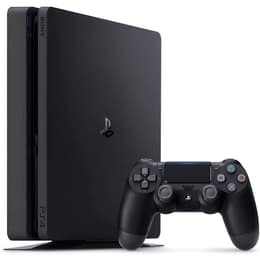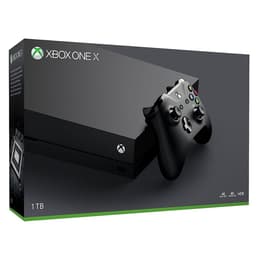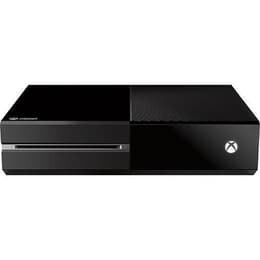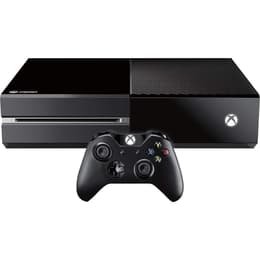
What Is the Difference Between Black Friday and Cyber Monday?
Updated on November 19, 2024
November 19, 2024
9 mins read
Miguel G.
Sr. Tech Copywriter (US)
Cyber Monday and Black Friday are sales events held shortly before and after Thanksgiving. Retailers offer significant deals on many products. As such, these are popular days for shopping. While similar, there are minor differences between the events.
Cyber Monday and Black Friday are two very similar events — to the point of overlapping much of the time — within a short time period. Therefore, it may be easiest to imagine these holidays as one big weekend. Do not think about them as two separate events, just a larger time period when different savings can pop up — but also vanish.
Some deals will appear on Black Friday and get gradually better as Cyber Monday approaches, while others will sell out as soon as they appear on Black Friday. Some retailers have extended the savings to a whole week — completely blurring the line between Black Friday and Cyber Monday. Now, it is no longer about one day of savings when online shopping is the new norm, and we are bombarded with deals throughout the holiday season.
What is Black Friday?
Black Friday is a major shopping event that takes place annually on the day after Thanksgiving in the United States, which is celebrated on the fourth Thursday of November. This means Black Friday typically falls between November 23 and 29.
Historically, the day marks the unofficial start of the holiday shopping season, with retailers offering significant discounts on a wide variety of products, from electronics and clothing to home goods and more. It's become one of the busiest shopping days of the year, both in physical stores and online.
Black Friday origins: how did it start?
The term Black Friday first appeared in the public lexicon about an event that has nothing to do with Thanksgiving or the following days. For over a century, Black Friday was a reference to the disastrous stock market collapse in 1869, with the word “black” building a negative or mournful connotation in this context.
However, the term Black Friday, as we know it today, can be traced to the 1950s when frustrated police and business leaders continued to use the term in a negative light for the popular holiday shopping that took place after Thanksgiving. Historically, employees took the day after Thanksgiving off to extend their weekends. This would affect the productivity of most businesses, their bottom line, and as a result, the economy. Being a popular day to call out of work and to shop, the day often interfered with business and coincided with disruptive traffic.
However, in the 1980s, this term took on new meaning. Retailers found that the large number of shoppers on this day often took their annual revenue out of the “red” (indicating losses) and into the “black” (indicating profit). This prompted a rebrand for the term “Black Friday,” as well as a tradition of annual deals on this popular shopping day to further support profits.
Over the years, it has grown into a global shopping phenomenon, with many countries adopting their own versions of Black Friday deals.
What to buy on Black Friday
While Black Friday is still associated with in-store frenzy shopping, online shopping has made the event even more accessible. For savvy shoppers, it’s an opportunity to score significant savings, though it’s wise to plan ahead to avoid overspending or missing out on popular items. Some types of products offer better deals and opportunities than others when it comes to Black Friday shopping. These products include:
High-price electronics like gaming laptops, MacBooks, and tablets;
Small appliances like blenders and toasters;
Smart home technologies like home security gadgets and smart thermostats;
Gaming consoles like Xbox, PlayStation and Nintendo;
Wearable devices like smartwatches and fitness trackers;
Home Goods like towels and decor
Meanwhile, you should be wary of “doorbuster” deals that often feature cheap materials or hidden fees.
What is Cyber Monday?
Cyber Monday is the second most popular shopping event behind Black Friday and takes place on the Monday following Thanksgiving. While Black Friday is known for its mix of in-store and online deals, Cyber Monday focuses exclusively on online sales, offering discounts on a wide range of products like electronics, clothing, beauty items, and more.
Origins of Cyber Monday
Following a similar trend to Black Friday, online shopping became increasingly popular in the days following Thanksgiving as e-commerce became more common. Cyber Monday was created in 2005 as a way to encourage people to shop online, especially those who might have missed out on Black Friday deals. This year, it falls on November 25, 2024.
What to buy on Cyber Monday
For shoppers, Cyber Monday is a great opportunity to snag discounts from the comfort of home without dealing with the crowds and chaos of in-store Black Friday shopping. Many retailers also extend their deals across both events, turning the days between Black Friday and Cyber Monday into a long weekend of savings. Similar to Black Friday, you should be strategic about what products you buy on Cyber Monday. Products that are typically a good bet include:
Smartphones and smartphone accessories;
Refurbished electronics like laptops and tablets;
Beauty products like skincare and makeup items;
Video games and other digital media;
Shoes and seasonal clothing;
Home exercise equipment
Does Cyber Monday or Black Friday have better deals?
Whether Black Friday or Cyber Monday offers better deals largely depends on what you're shopping for and your preferred shopping experience. Here's a comparison to help you decide:
Black Friday
Better for: Big-ticket items like TVs, gaming consoles, kitchen appliances, and other electronics.
In-store exclusives: Many retailers offer "doorbuster" deals you can only find in physical stores, which are often deeply discounted.
More variety: You’ll find deals across a wide range of categories, both online and in stores, making it ideal if you're shopping for multiple types of products.
Downside: In-store shopping can be hectic, with long lines and limited inventory. Online Black Friday deals may sell out quickly.
Cyber Monday
Better for: Smaller electronics, clothing, beauty products, and digital goods like software and subscriptions.
Online exclusives: Retailers often save their best online deals for Cyber Monday, particularly on items that didn't sell out on Black Friday.
Convenience: Entirely online, making it more relaxed and hassle-free than Black Friday.
Downside: While the discounts can be substantial, they’re often limited to specific categories, and the best deals might disappear quickly due to high demand.
Which is better overall?
For electronics: Black Friday generally wins, especially for high ticket items and large TVs, laptops, and appliances.
For online shopping and tech accessories: Cyber Monday might have a slight edge, particularly for deals on smaller gadgets, smart home devices, and software.
For overall savings: Both events can be comparable, but the best strategy is to research in advance. Many retailers now extend similar discounts across the weekend, blurring the lines between the two days.
Tips for shopping on Cyber Monday and Black Friday
If you find a great discount for an item you are looking for, first consider whether you actually need it. Then, you should assess your budget for Holiday shopping to determine whether the expense is worthwhile. At this point, if you're ready to buy and find a deal, here are a few tips to keep your shopping in check:
Create a shopping list organized by priority.
Be aware of return policies.
Research shipping policies and fees.
Compare deals from multiple retailers and websites.
Research deals from previous years to inform your shopping list.
Follow your preferred retailers on social media for information and updates.
Build a spreadsheet to keep information organized.
Reject add-ons and upsells that you do not need.
Be mindful of personal security related to website security and potential exposure of sensitive information.
Bear in mind that if you are shopping with traditional retailers, most deals you see on Black Friday will not necessarily get better by Cyber Monday. As such, it may be best to jump on deals as they become available. But of course, there's speculation that recently, Black Friday has been a bust for shoppers, so try not to spend too many hours stressing out, trying to find an extra few dollars of savings.

Written by Miguel G., Sr. Tech Copywriter (US)
Miguel is always looking for new ways to provide unique perspective on popular tech and has taken his writing to the refurbished industry to promote sustainability. Outside of creating content, you might find him travelling the globe, coaching a fitness class, or cheering on his favorite sports teams (Go Dolphins!)





























